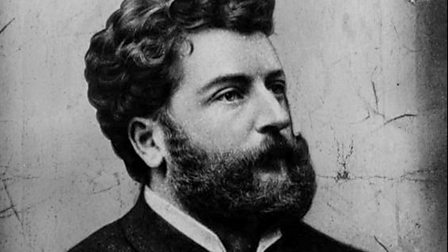Georges Bizet, born on October 25, 1838, in Paris, France, was a brilliant and influential composer of the Romantic era. His full name was Alexandre-César-Léopold Bizet, and he displayed exceptional musical talent from a young age. Despite his relatively short life, Bizet’s compositions, particularly his operas, have left an enduring legacy in the world of classical music.
Bizet’s musical education began at the Paris Conservatoire, where he studied piano and composition. His early compositions showed promise, and he won the prestigious Prix de Rome in 1857, which allowed him to spend several years in Italy, immersing himself in the rich cultural and musical traditions of the region. This experience greatly influenced his musical style and gave him a broader perspective on composition.
Upon returning to Paris, Bizet faced the challenges of establishing himself as a composer. He initially struggled to gain recognition for his works, which ranged from symphonies and chamber music to operas. Despite facing financial difficulties, he continued to refine his craft and experiment with different musical forms.
Bizet’s breakthrough came with the opera “Carmen,” which premiered in 1875, three months before his untimely death. While “Carmen” is now celebrated as one of the greatest operas ever composed, it was met with mixed reviews during Bizet’s lifetime. The opera’s bold and exotic themes, along with its complex characters and innovative orchestration, were not fully appreciated until after his death.
Tragically, Bizet passed away on June 3, 1875, at the age of 36, just as “Carmen” was gaining popularity. The cause of his death remains uncertain, with theories ranging from a heart attack to complications from an ear infection. Regardless of the circumstances, Bizet left behind a remarkable body of work that continues to captivate audiences worldwide.
In addition to “Carmen,” Bizet’s compositions include the opera “The Pearl Fishers,” the Symphony in C, and various piano and orchestral pieces. His music is characterized by its melodic richness, rhythmic vitality, and a keen sense of dramatic expression. While he did not live to witness the full extent of his success, Georges Bizet’s contributions to classical music have solidified his place among the great composers of the Romantic era.


Comments are closed